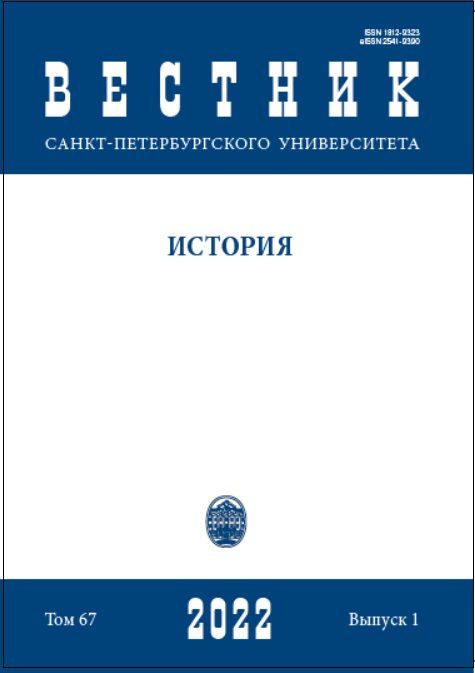О подготовке Антоном Владимировичем Карташевым книги о Святой Руси
DOI:
https://doi.org/10.21638/11701/spbu02.2022.116Abstract
Based on archival and published sources, the author analyzes complex contexts of writing a narrative about Holy Rus’ by a well-known émigré historian. The political and ideological contexts were determined by changes in the composition and sentiments of Russian refugees after the Second World War. On the one hand, the historian recalled the anti-Bolshevik origins of the post-revolutionary emigration to those who were obsessed with the “Soviet patriotism” feelings as a result of the Red Army victory. One the other, he represented a religiously grounded ideal which could serve as the basis for cultural and historical identity of the anti-Soviet “displaced persons”. The religious context was primarily a result of the failure to unite the Orthodox jurisdictions of Russian emigrants after the WWII that required from the historian to dissociate himself from the reactionary program of the Russian Orthodox Church Abroad protagonists. The situation was complicated by the disagreement between older and younger generations of the representatives of the “School of Parisian theology”, which characterizes the academic context. As a result, Kartashev had to disassociate himself with those of his disciples who did not fellow his interpretation of the Chalcedonian dogma. And last not least, the organizational and financial contexts, which also depended on the ideological and political contexts, determined that he could not seek financial support from the YMCA, but applied for it to Novitsky brothers, who organized fundraising activity of Russian Orthodox emigrants in the United States to ensure publication of the book. Refs 16.
Keywords:
Anton V. Kartashev, Holy Rus’, Russian emigration after the World War II
Downloads
Downloads
Published
How to Cite
Issue
Section
License
Articles of "Vestnik of Saint Petersburg University. History" are open access distributed under the terms of the License Agreement with Saint Petersburg State University, which permits to the authors unrestricted distribution and self-archiving free of charge.





